U.S.-Russia Relations in Presidential Campaign Spotlight
International powers such as Russia have been watching the candidates closely throughout the campaign, as both politicians and experts abroad ponder what to expect from the next four years Although Obama's stance is not likely to change much, Romney remains an unknown quantity for the Russians .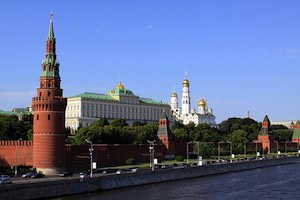
By Ivo Mijnssen and Philipp Casula
During the third and final debate, President Barack Obama reminded voters that Mitt Romney once referred to Russia as “our No. 1 geopolitical foe.” International powers such as Russia have been watching the candidates closely throughout the campaign, as both politicians and experts abroad ponder what to expect from the next four years. Although Obama’s stance is not likely to change much, Romney remains an unknown quantity for the Russians.
Interestingly, Romney has not always been so hostile to Moscow. Under his leadership, Bain & Co. counseled Russian and Chinese government leaders on the transition to capitalism in the early 1990s. (The Romney campaign refuses to comment on the exact nature of his involvement.) How things change. Throughout the campaign, Romney has made negative statements about Russia. Obama used this aggressive stance to ridicule his opponent, saying that “the 1980s, they’re now calling to ask for their foreign policy back because, you know, the Cold War’s been over for 20 years.” In a similar vein, former Russian President Dmitry Medvedev said Romney’s comment “smelled of Hollywood” and was inspired by Cold War spy movies. Current Russian President Vladimir Putin was only slightly more diplomatic when he showed some understanding of Romney’s “pre-election rhetoric” before adding that words like these were not appropriate for someone who aspired to be the leader of a superpower. Later on, however, Putin thanked Romney for his “openness.”
Putin’s remark may have been sarcastic. Still, it points to the fact that not all members of the Russian establishment would be unhappy with a president Romney. As Andrei Ryabov, a political analyst with the Carnegie Moscow Center, told Truthdig, “Only conservative circles of Russian Siloviki [hawks close to the military and security services] are dreaming about Romney. They need the threat of a new Cold War.” It seems conservatives in the U.S. and Russia share a nostalgia for a clearly definable enemy to justify their own worldviews.
Generally, however, Ryabov believes that Putin and the mainstream in government circles would prefer to continue dealing with Obama, because, so far, he has been “flexible and does not meddle in Russia’s internal politics. Obama’s administration is absolutely indifferent concerning the situation in the post-Soviet space except for security issues in Central Asia,” Ryabov explained. Putin, himself, called Obama “an honest person who really wants to change many things for the better” and lauded the progress that Obama and Medvedev had made over the last four years since Obama’s “reset” of Russian-American relations. Chief among these achievements is the 2010 New START nuclear disarmament treaty and Russia’s ascension to the WTO, which the Obama administration supported.
The reset put U.S.-Russian relations back on a pragmatic level after they had reached their nadir with tensions over “Colored Revolutions” in the post-Soviet region and Russia’s invasion of Georgia in 2008 near the end of George W. Bush’s presidency. Obama’s reset also meant that his government did not criticize Russia’s human rights record in order not to jeopardize Russian good will on disarmament, the Iranian nuclear program or transit rights for U.S. supplies to Afghanistan. Russian opposition figures have repeatedly criticized Obama for his silence on such matters.
Russian-American tensions remain over the U.S. government’s planned missile defense system in Europe and Russia’s support for the Syrian regime. Putin, however, expressed confidence that these issues could be resolved in further negotiations with a future president Obama. Obama insinuated as much in March when he was captured by a live mic telling Medvedev off the record that he would have “more flexibility” on negotiations about missile defense once he was re-elected. Romney has criticized Obama’s remarks as a betrayal of U.S. allies in Eastern Europe, particularly Poland.
Conservative forces in the Russian government, for their part, warn that Romney could use the missile defense system in Europe against Russia, in spite of NATO’s promises to the contrary. Dmitry Suslov of the Russian Council on Foreign and Defense Policy even warned of a new arms race if Romney was elected.
Independent Russian experts in U.S.-Russian relations, however, display rather sober views on all possible outcomes of the election. While acknowledging the basic differences between the candidates, Vladimir Sogrin, head of the Center for North American Studies at the Institute of World History of the Russian Academy of Sciences, does not believe that Romney’s policies toward Russia would be fundamentally different from the current president’s. “Obama and Romney, the Democrats and the Republicans, are no different in relations to foreign policy since both believe that America is an exceptional country” that is “bound to lead,” Sogrin states in an interview with Radio Liberty. However, Sogrin qualifies his remark by pointing to the influence of foreign policy circles in Romney’s camp that favor a unilateral action by the U.S. in world affairs. So whereas the Republicans advocate U.S. primacy in terms of a democratic empire, Obama is convinced that U.S. primacy can be maintained only through multilateral action. Obama’s perspective conforms more to the Russian worldview, beyond the simple fact that it means Russian voices will be heard in the international arena. Moscow’s post-Soviet foreign policy, particularly since 2000, has almost obsessively insisted on regulating as many aspects of international politics as possible through treaties and agreements. One of the symptoms of this attitude was Medvedev’s proposal for a new security architecture in Europe, which NATO rebuffed for obvious reasons.
If he abides by the Republican Party platform, Romney will emphasize human rights more strongly than Obama did in dealings with the Russian government. This touchy issue could strain U.S.-Russian relations. The platform calls for passing the Magnitsky Rule of Law Accountability Act as a precondition for normalizing trade relations with Russia. Approval of this act would allow for sanctions against all Russian government officials involved in corruption or human rights abuses. Even though Dmitri Trenin of the Carnegie Moscow Center considers the act largely “symbolic politics,” it is not likely to improve relations. At the end of the day, many things will not change: As long as U.S. troops remain at Afghan President Hamid Karzai’s side, the U.S. will need Russia, and both candidates agree that troops will remain at least until 2014. The American government also wants Russian support in the U.N. Security Council to gain international recognition and legitimacy for foreign policy actions. Moreover, new challenges lie ahead and China is becoming a main competitor in the international arena, for both Russia and the U.S. Finally, in the face of U.S. budget shortfalls, it is unlikely that Romney will be able to realize his plan to expand military spending. The more assertive role that hawks want for the U.S. on the international stage, beyond what has already been realized, is hence more of a mirage and no threat to improved relations with Russia.
Obama’s pragmatic Russian policy is unlikely to create enthusiasm on either side, especially since it is unclear in which direction it would be developed further. Negative stereotypes and phobias are still widespread in both countries more than 20 years after the Cold War ended. Nonetheless, pragmatic voices prevail. Russian foreign policy legalism and pragmatism are undoubtedly motivated by self-interest, but they entail real new policy options. Take for instance Russia’s suggestion to include Iran in possible Syria peace talks, a possibility which may not be that unlikely given that Iran already engaged in direct talks with the U.S. on Iraq in 2007. In the end, both sides, and the U.S. as the stronger partner in particular, must remain committed to multilateralism to develop the relations between the two countries. Russian Foreign Minister Sergey Lavrov summed this up well in his call for a closer partnership: “If we talk about ‘reset,’ it is clear that, using computer terminology, it cannot last forever. Otherwise it would not be a ‘reset’ but a program failure,” he told Russian daily Kommersant.
The Russian public is also in favor of good relations with the U.S. According to the independent polling institute Levada, Russians have a critical but overall favorable view of the United States. Although 67 percent of Russian respondents said in a September survey that the U.S. tried to impose international laws on others to which it did not abide, roughly half said they had a positive attitude toward the country. This opinion has been relatively stable since January 2010, though in slight decline lately. Moreover, in a Levada poll taken Oct. 19 to 22 that asked Russians to choose between the two contenders for the U.S. presidency, a majority remained undecided. Fifty-one percent said it was difficult to say which candidate would be better for Russian-American relations. Among those who did submit an preference, 41 percent chose Obama, whereas just 8 percent selected Romney.
Ivo Mijnssen holds an MA in Eastern European History and Sociology from the University of Basel, Switzerland. He is currently a Gerda Henkel Foundation fellow writing his Ph.D. at the University of Basel. He received his BA from Brown University and was a Visiting Scholar at Stanford. He regularly contributes to various publications as a freelance journalist and recently published a book on the Russian youth movement Nashi, “The Quest for an Ideal Youth in Putin’s Russia.”
Philipp Casula recently obtained a Ph.D. in sociology from the University of Basel, Switzerland, defending a thesis on Russian domestic politics.
Your support matters…Independent journalism is under threat and overshadowed by heavily funded mainstream media.
You can help level the playing field. Become a member.
Your tax-deductible contribution keeps us digging beneath the headlines to give you thought-provoking, investigative reporting and analysis that unearths what's really happening- without compromise.
Give today to support our courageous, independent journalists.

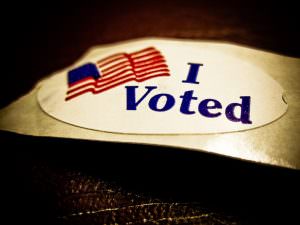
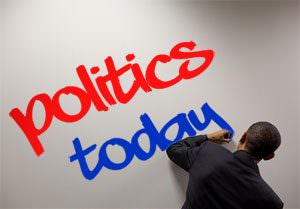
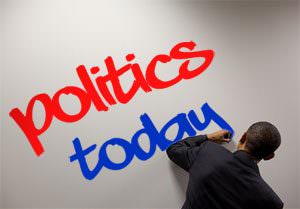
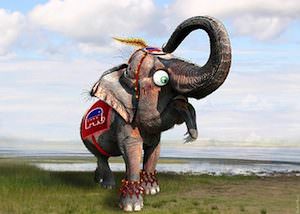
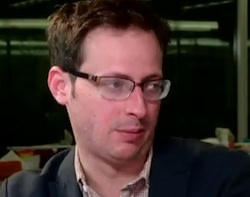
You need to be a supporter to comment.
There are currently no responses to this article.
Be the first to respond.